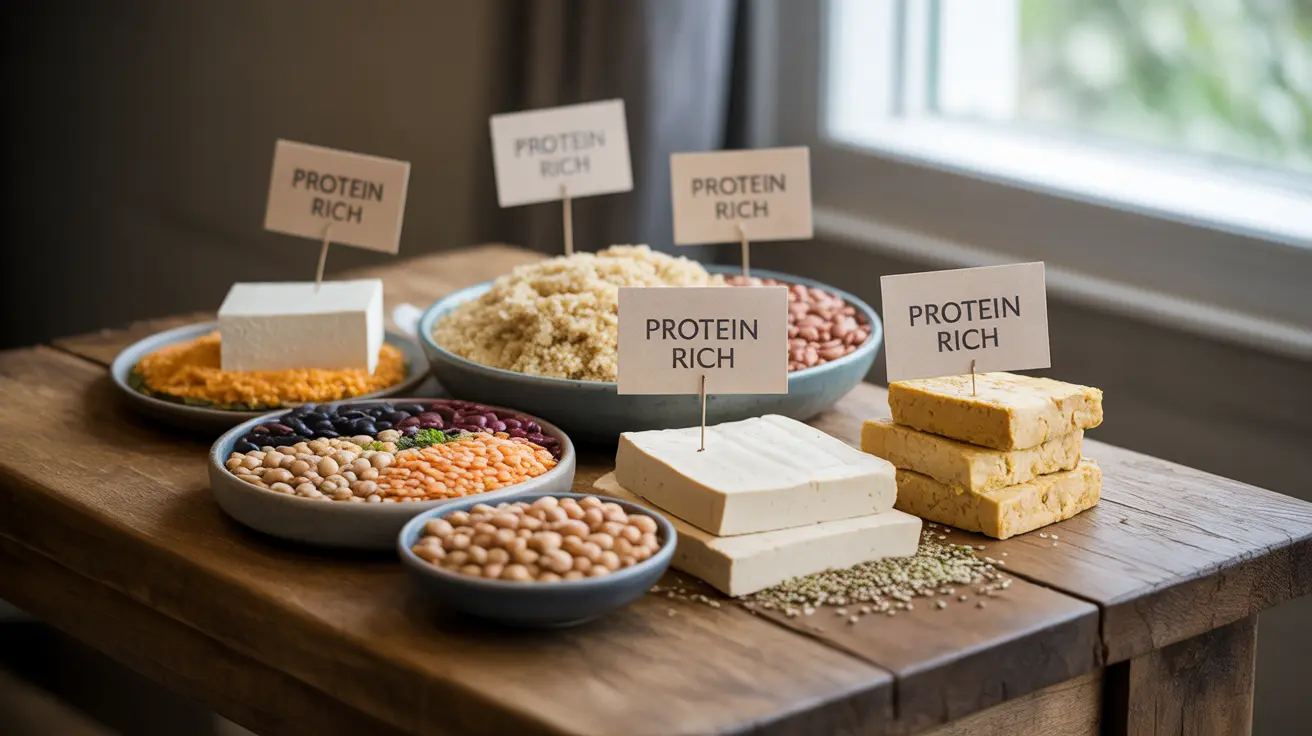Following a vegan diet doesn't mean compromising on protein intake. In fact, there are numerous plant-based foods that provide abundant protein while supporting overall health and wellness. Whether you're a long-time vegan, considering the switch to plant-based eating, or simply looking to incorporate more plant proteins into your diet, understanding your options is crucial.
This comprehensive guide will explore the best vegan protein sources, how to combine them effectively, and strategies to meet your nutritional needs through plant-based eating.
Top High-Protein Vegan Foods
Several plant-based foods pack an impressive protein punch, making them excellent choices for meeting daily protein requirements:
Legumes and Pulses
- Lentils: 18g protein per cooked cup
- Black beans: 15g protein per cooked cup
- Chickpeas: 14g protein per cooked cup
- Split peas: 16g protein per cooked cup
Soy-Based Products
- Tempeh: 31g protein per cup
- Tofu (firm): 20g protein per cup
- Edamame: 17g protein per cup
- Soy milk: 8g protein per cup
Whole Grains and Seeds
- Quinoa: 8g protein per cooked cup
- Hemp seeds: 10g protein per 3 tablespoons
- Chia seeds: 5g protein per 2 tablespoons
- Buckwheat: 6g protein per cooked cup
Complete Protein Sources for Vegans
While many plant proteins are incomplete, meaning they don't contain all nine essential amino acids, several vegan sources do provide complete protein profiles:
Complete Protein Foods
- Quinoa
- Soy products (tofu, tempeh, edamame)
- Hemp seeds
- Buckwheat
- Seitan (wheat protein)
Protein Combining Strategies
For incomplete protein sources, combining different plant foods can create complete protein profiles. Some effective combinations include:
- Rice and beans
- Whole grain bread with nut butter
- Hummus with pita bread
- Corn and bean tortillas
- Lentil soup with whole grain crackers
Meeting Athletic Protein Needs
Athletes and active individuals following a vegan diet typically need 1.2-2.0 grams of protein per kilogram of body weight. Focus on these protein-rich options for muscle support:
- Protein smoothies with plant-based protein powder
- Post-workout meals combining legumes and grains
- Snacks incorporating nuts and seeds
- Multiple servings of soy products throughout the day
Essential Nutrients and Supplementation
While focusing on protein-rich vegan foods, it's important to address potential nutrient gaps. Consider these key nutrients:
- Vitamin B12: Supplement or fortified foods
- Iron: Combine iron-rich foods with vitamin C
- Omega-3s: Algae-based supplements or flaxseeds
- Zinc: Nuts, seeds, and fortified foods
- Calcium: Fortified plant milk and leafy greens
Frequently Asked Questions
What are the highest-protein vegan foods I can eat to meet my daily protein needs?
The highest-protein vegan foods include tempeh (31g/cup), firm tofu (20g/cup), lentils (18g/cup), black beans (15g/cup), and seitan (25g/100g). These foods can be easily incorporated into meals to meet daily protein requirements.
How can I combine plant foods to ensure I get all essential amino acids on a vegan diet?
Combine complementary proteins throughout the day, such as grains with legumes, nuts with whole grains, or seeds with legumes. For example, pair rice with beans, or spread nut butter on whole grain bread.
Which vegan protein sources are complete proteins and how much do they provide?
Complete vegan proteins include quinoa (8g/cup), tofu (20g/cup), tempeh (31g/cup), seitan (25g/100g), and hemp seeds (10g/3 tbsp). These foods contain all nine essential amino acids.
How much protein do athletes or people trying to build muscle need on a vegan diet?
Vegan athletes typically need 1.2-2.0g of protein per kilogram of body weight. For muscle building, focus on high-protein foods like tempeh, seitan, and legumes, and consider plant-based protein supplements if needed.
Do I need supplements on a vegan diet to prevent nutrient gaps?
Most vegans should supplement with vitamin B12, and consider supplements for omega-3s, iron, zinc, and calcium if dietary intake is insufficient. Regular blood work can help identify specific nutrient needs.




